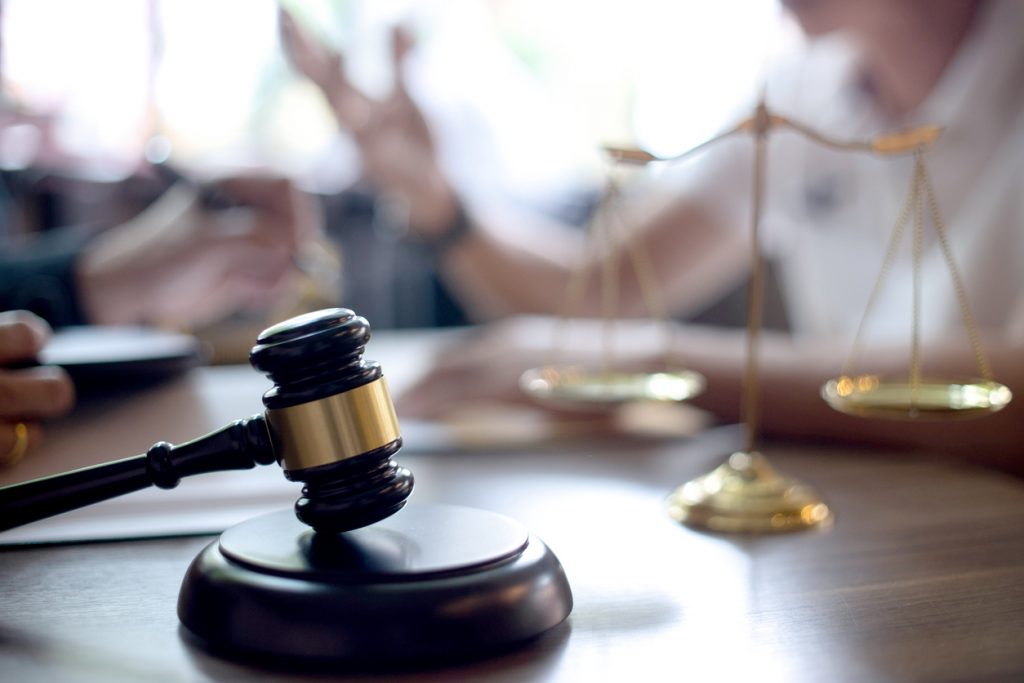Who Decides Your Fate in a Personal Injury Case in Colorado: Judge or Jury?

When you’re involved in a personal injury case in Colorado, one of the important decisions you’ll face is whether your case will be heard by a judge or a jury. This decision can significantly impact the outcome of your case as there are several positive, and negative, consequences between the two. Understanding both can greatly help the choice you might make when deciding if you want a judge to decide your fate, or a jury.
The Power to Choose: Judge vs. Jury
In Colorado, personal injury cases offer the plaintiff, the person who was injured, the opportunity to choose between a trial by jury, or a trial by judge, also known as a bench trial bench trial. This choice is a fundamental right and one that can steer the course of your proceedings. If an injured person requests a jury trial, they are entitled to it—a cornerstone of our legal system.
Why Opt for a Jury?
The benefits of having a jury decide your case are numerous, particularly in personal injury claims. Here’s why many plaintiffs prefer to place their fate in the hands of a jury:
1. The Understanding of Societal Norms and Values
A jury is composed of peers from your community, also known as your judicial district, bringing diverse perspectives to the table. This group’s collective decision can often reflect a community’s sense of justice and fairness more accurately than a single judge. Their varied backgrounds allow for a broader understanding of societal norms and values, which can play a crucial role in deciding issues like pain and suffering or moral responsibility.
2. Diverse Perspectives for Fairer Verdicts
Each juror brings their unique background, experiences, and thought processes to the deliberations. This diversity helps in examining the case from multiple angles, reducing the likelihood of oversight and bias that might occur with a single person. The blend of different viewpoints can lead to a more balanced and fair decision, as jurors check each other’s prejudices and assumptions.
Juries are required to reach a consensus, which means they must engage in thorough discussions and consider all aspects of the case before arriving at a decision. This process of deliberation often leads to a deeper engagement with the case material, fostering decisions that are considered from all angles.
3. Lack of Professional Biases
Juries can act as an equalizer against powerful defendants, such as large corporations or insurance companies. Their role is to weigh the evidence without the professional biases that might affect a judge, who may inadvertently favor a more procedural viewpoint. Juries can level the playing field, especially when a case involves complex emotional and ethical questions.
Opting for a Judge
While the benefits of a jury trial are compelling, some choose to have a judge decide their case. This might be strategic choice, considering the reasons as to why someone would want a bench trial over one of their peers
1. Complex Legal Issues
If your case involves intricate legal arguments, technical evidence, or highly specific laws, a judge may be better equipped to understand and apply the law correctly. Jurors may struggle with complex legal principles, while a judge has the experience to make precise rulings based on the law.
2. Faster Resolution
Bench trials are typically quicker than jury trials. Without the need to select and instruct a jury, the process moves faster, meaning you could receive a decision sooner rather than later. If you’re looking to avoid lengthy litigation, a bench trial might be a more efficient option.
3. Predictability and Consistency
Judges follow legal precedent and have experience with similar cases, which can make their decisions more predictable. A jury, on the other hand, consists of individuals who may interpret evidence in different ways, leading to unpredictable outcomes.
The Role of the Judge in a Jury Trial
Even when a jury is selected to determine the outcome of a personal injury case, the judge still plays an active role throughout the trial. Think of the judge as a referee, ensuring that the rules are followed and that the proceedings are fair and orderly. Here are the key responsibilities of a judge in a jury trial:
1. Pretrial Rulings
Before the trial even begins, the judge makes critical decisions during the pretrial phase. This includes ruling on various motions, which may involve the admissibility of certain pieces of evidence, the scope of discovery, and other legal issues that can significantly shape the trial’s course. These decisions can determine what information the jury will hear, and which issues they will consider.
2. Ruling on Evidence
During the trial, the judge decides what evidence is admissible and can be presented to the jury. This involves ensuring that the evidence meets legal standards. Remember, not all evidence can come before the jury. The judge must apply the rules and laws to maintain the trial’s integrity without unduly influencing the jury’s perceptions.
3. Jury Instructions
One of the judge’s most important roles is to provide the jury with instructions on the law applicable to the case. These instructions guide the jury on how to interpret the laws that relate to the case they are judging, including definitions of legal terms and the standards that must be met to find liability or award damages. These instructions are crucial for the jury to make informed decisions based on the law and the evidence presented.
4. Maintaining Order
Throughout the trial, the judge is responsible for maintaining order and decorum in the courtroom. This includes managing the interactions between the opposing legal teams, ensuring that the proceedings are conducted respectfully and efficiently, and handling any issues that arise during the trial.
5. Legal Clarifications and Decisions
At times, during the trial, the jury may need clarification on points of law or procedural issues. The judge addresses these questions and ensures that the jury understands how to carry out their duties correctly. Additionally, the judge may need to rule on legal issues that arise unexpectedly during the trial, which could influence the proceedings or the jury’s understanding of the case.
By overseeing these aspects, the judge ensures that the trial adheres to legal standards and that the jury can perform its role without procedural or legal confusion. This helps protect the rights of all involved parties and upholds the integrity of the judicial process.
Making Your Choice
Deciding between a judge and a jury in Colorado personal injury cases involves assessing the specifics of your situation, the strengths of your case, and what you feel most comfortable with. Consulting with experienced legal counsel, like those at Hoffman Law Firm PC, can provide you with insights and guidance tailored to maximize the effectiveness of your claim.
